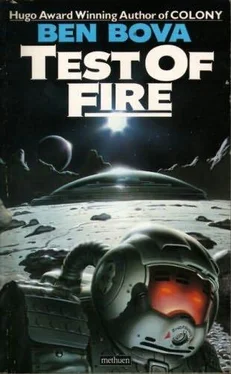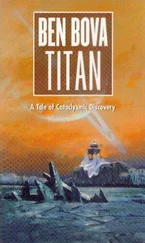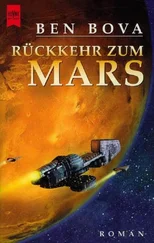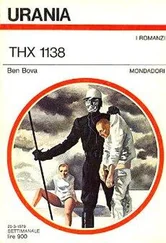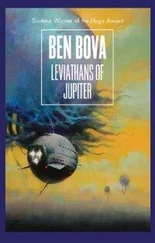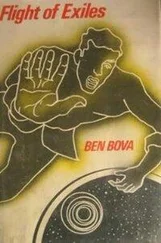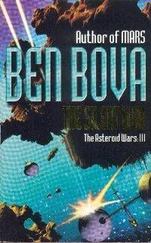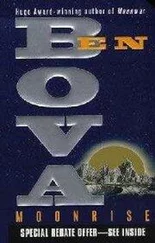Fire is the test of gold; adversity, of strong men.
— Seneca
It was a fine moonless night. A light summer breeze rustled through the forest, making the trees murmur in the darkness. High up on the mountaintop, far from the noise and lights of cities, the sky was deep and wondrous, sparkling with thousands of stars.
Pipe clamped tightly in his teeth, Dr. Robert J. Lord leaned against the parapet surrounding the observatory dome. He could just make out the lovely features of the student beside him in the shadows.
“This is what your life will be like,” he said to her, his voice a calculatedly soft whisper. “If you go ahead and take your degree in optical astronomy, you’ll be here night after night, working ’til dawn.”
Jenny Robertson tried not to show how cold she felt. It was mid-August, but up here on the mountain the New England night was almost wintry. I won’t let him see that I’m freezing, she told herself.
Physical discomfort is something that astronomers have to face. And besides, one shiver and he’ll try to put his arm around me.
“All night long,” Lord repeated wistfully. “It gets pretty lonely.”
Jenny knew about his reputation. Dr. Lord was in fairly good shape for a man of fifty, she thought, even though that age seemed ancient to her. Every female student in the department knew his statistics: married twice, divorced twice, and you could get an A from him the same way Hester Prynne got hers.
“But doesn’t the computer handle the telescope once you’ve programmed in the coordinates for the night’s observations?” she asked, clasping her arms to herself and wishing she had worn a heavier sweater. “I mean, like, you don’t really have to stay up here all night, do you?”
Lord took the pipe from his mouth and fiddled with it while he arranged a reply in his mind. He wanted to impress this pert-faced, ample-bosomed graduate student with his dedication to astronomy.
“Oh, sure, you can let the computer and the image enhancers and the cameras do your work for you,” he said lightly, almost carelessly. “But some of us prefer to stay on duty right here and make certain everything is going right. I’m probably old-fashioned about it, I guess.”
“Oh no,” she said quickly. “I think you’re very… well, like, dedicated.” And she told herself silently that the trick is to get a good grade out of him without letting him get his hands on her.
Lord shrugged modestly. “You see, there’s always the chance that something unexpected might happen. Equipment glitch, maybe, or maybe something pops up there in the sky and you want to get onto it right away.”
“Have you ever come across a totally unexpected phenomenon?” Jenny asked. “Something that nobody’s ever seen before?”
“Well, no,” he admitted. “Not yet, but…”
He stopped. It suddenly struck him that he could see her face clearly. Turning, he looked up at the eastern sky. It was milky white. He glanced at his wristwatch. It was bright enough to see the hands easily.
“Two-twelve,” he muttered. “Dawn isn’t for another five hours.”
A breath of warm breeze gusted past them.
Jenny felt herself relax; her goosebumps disappeared. But Lord was staring open-mouthed at the brightening sky.
“It can’t be,” he said. “It can’t be.”
The wind rose sharply and became warmer, hot as midsummer noon. The vast forest surrounding the mountain sighed and groaned under the wind.
The sky turned molten copper, the stars faded from sight. Birds began chirping in the trees below.
And still Lord stared at the glowing sky. “Oh my god,” he whispered. “Oh my god…”
In Rome the sun had been up for more than an hour and the city was alive with honking, beeping automobiles driven by impatient, excitable Romans who banged on their horns and leaned out of their car windows to hurl imprecations at each other.
Without warning the air suddenly became unbearably bright and hot, as if giant floodlamps had been turned on everywhere. Traffic crawled to a halt, people stared in fright, drivers clawed their way out of jam-packed cars, sweating, staggering, and still the light became brighter and hotter, intolerably white-hot like a vast burning iron pressed down everywhere. Women screamed and fainted. Men collapsed onto bubbling asphalt streets. Trees began to smolder along the sidewalks as people ran shrieking indoors. Awnings burst into flame. The Vatican gardens blossomed into a firestorm. Fountains turned to steam. The entire city began to smoke and flame under the burning sky.
All of Italy, all of Europe, Africa, Asia burst into flame. Wherever the sunlight touched, flame and death blossomed. By the millions, by the hundreds of millions, people died in their tracks. Whole forests of equatorial Africa blazed as animals panicked blindly, racing for shelter where there was no shelter. Human animals panicked too: pygmy hunters deep in the burning forests and western-dressed businessmen in modern cities, they all died, their clothing bursting into fire where the sun touched them, or suffocating in the firestorms that swept whole continents as they tried to hide from the sun inside their white-hot buildings.
Cities became ovens. Grasslands became seas of flame. As the touch of dawn swept westward across the spinning planet Earth, its fiery finger killed everything in its path. Glaciers in Switzerland began to melt, floodwaters poured down on the burning, smoking villages dotting the Alpine meadows. Paris became a torch, then London.
North of the Arctic Circle, Lapplanders in their summer furs burst into flame as their reindeer collapsed and roasted on the smoking tundra.
The line of dawn raced westward across the Atlantic Ocean, but as it did the brightness diminished. The Sun dimmed as quickly as it had brightened. The flare was over. It had lasted less than an hour, and on the scale of the Sun’s seething furnace of energy it had been little more than a minor disturbance. But it left half the planet Earth a pyre. Smoke covered Asia from Tokyo to the Urals, all of Europe and Africa and Australia.
The Americas escaped the Sun’s wrath. Almost.
Deep underground, beneath the solid granite of the Ural Mountains, Vasily Brudnoy stared at his communications screen in horror.
His was the biggest screen in the missile control center, a full fifteen meters across. It showed the entire Soviet Union, with white lights for each major city, red lights for military centers, and clusters of orange lights for the missile silos that held the ICBMs.
Vasily, a captain after ten years of service in the Red Army, could feel General Kubacheff’s gasping breath on his neck.
“Try Moscow again,” the general commanded.
Vasily touched the proper buttons on his keyboard console. He pressed his free hand against the earphone clamped to the left side of his head, leaning forward intently as if he could make Moscow reply by sheer force of his will.
Nothing. Only the hum of the carrier wave.
“They don’t reply, sir.”
General Kubacheff put a brown Turkish cigarette to his lips. “Leningrad,” he snapped. And when Vasily told him again that there was no answer, the general puffed out a cloud of gray smoke.
“Rostov. Gorki. Someone must answer!”
Vasily tried. In vain. He kept his eyes focused on his screen, wanting to see nothing of the men and women behind his back. But he could not escape the phantom images of their reflections against the screen’s glass. Already they look like ghosts, he thought. He heard their whispers, their frightened murmurings. He felt the cold, clammy fear that gripped the underground command center.
Читать дальше
